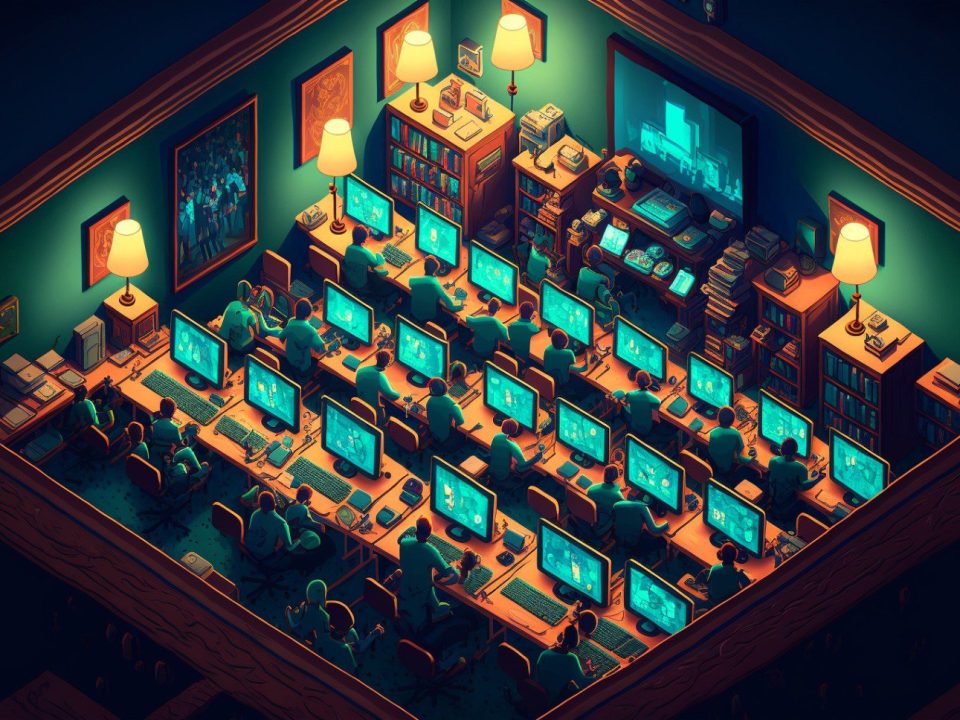Global Perspectives on Skill Gaming: Cultural Influences and Variances

The Economics of Skill Gaming: Industry Trends and Analysis
January 9, 2024
The Social Side of Skill Games: Community, Collaboration, and Competition
January 11, 2024Global Perspectives on Skill Gaming: Cultural Influences and Variances – A first-of-its-sort concentrate on Expertise Internet Gaming in India by Vinayaka Mission’s Graduate School (VMLS) as a team with Esports Players Government Assistance Affiliation (EPWA).
The Middle for Equity Through Innovation (CJT), driven by Ms. Suhasini Rao, Academic partner and Collaborator Senior member at VMLS, and EPWA, is glad to declare the arrival of their examination report named “Understanding Profiles and Viewpoints of Online Ability Based Gamers in India.” This groundbreaking study provides unprecedented insights into the country’s legal landscape, obstacles, and opportunities for online gamers and esports players.

Table of Contents
ToggleGlobal Perspectives on Skill Gaming
Driven by Mr Nishant Sheokand, an Academic partner at VMLS and a Gaming Legal counsellor, this exceptional exploration gives a complete assessment of the quickly developing internet gaming and esports industry. With the significant ascent in the client base and market capitalization of the worldwide gaming area, especially during the pandemic, internet gaming has arisen as a crucial wellspring of food for people, with India turning into a key market. In any case, the shortfall of solidified regulation has prompted clashing decisions by different courts, making equivocalness encompassing the legitimate status of esports, web-based gaming, and the privileges of players and gamers in general. This report intends to address these difficulties by looking at the ongoing administrative systems and introducing a more profound comprehension of the privileges, commitments, and insurances for esports players, web-based gamers, and industry partners.
Professional gaming has become increasingly popular as a primary or secondary source of income, according to the study. A noteworthy 83% of respondents consider gaming a practical revenue source, with 39% thinking of it as their essential type of revenue, and 44% reviewing it as an optional source. These experiences feature the developing pattern of gaming as a lifelong decision, outperforming its customary insight as a simple diversion.
The examination likewise gives important experiences into the gaming inclinations of Indians, with puzzle games, tabletop games, and experience sports positioning as the top decisions across various socioeconomics and commitment levels. While AAA games stay famous among more youthful gamers, prepared players float towards poker, rummy, carrom, and puzzles.
Variations in Skill Gaming
The study goes into greater detail about the attitudes and preferences of gamers in India and covers important topics like the skills that are required, social and family support, professional gaming, and the effect that regulations have. Top-to-bottom meetings were led by relaxed and proficient gamers, incorporating those engaged with online dream sports and esports, to accumulate extensive information from different pieces of the country.
Despite normal generalizations related to gaming, the review features the devotion and responsibility showed by web-based gamers, with people committing 10-20 hours of the week to take part in gaming effectively. Progress in the web-based gaming world requires fundamental abilities like logical abilities (97%), fixation (87%), and imagination (69%).
In any case, the concentrate likewise uncovers the provokes looked at by gamers because of high duties forced through GST and TDS, the criminalization of players by specific state legislatures, and the shortfall of uniform guidelines across various states. Misconceptions and social stigma have resulted from a lack of clarity regarding games of skill and games of chance, affecting the support provided by families and communities.
The examination report closes with a requirement for a strong and clear-cut administrative system that shields client privileges and advances dependable gaming. By understanding the points of view of gamers, CJT and EPWA expect to shape powerful regulation that encourages a straightforward, flourishing, and socially dependable gaming environment in India.
Skill Gaming Future Aspects
Before long, skill-based gaming will extend because of six huge market shifts.
- More Games: Quite a while ago, skill-based gaming was included for the most of solitaire. Over 70% of Skillz’s revenue comes from its top three games, making it one of the biggest players in the industry. Over the long haul, more games will be made that offer intricate and vivid encounters. Sooner rather than later, expertise-based gaming will integrate the full gaming range, from AAA games to hyper-loose.
- More Stages: At present, most skill-based games that have an award-assembled model are iOS devices. For example, the Google Play Store doesn’t convey the most notable ability-based games right now accessible in the Application Store, like 21 Rush from Skillz and Bingo Lift from Ryu Games.
- Greater Topography: A market that quite a while ago was confined to the U.S. is generally filling in areas including the U.K., Australia, Canada and India. Similar to how interpersonal organizations began with energy in North America and later spread worldwide, skill-based games have not yet received widespread acceptance.
- Meta Drivers: Despite their given fan base, support for skill-based games remains low. Other existing state-of-the-art games give impressively more perplexing award structures and meta-games.
- Artificial intelligence and Individual Economy: The gaming business is ending up being more perplexing on two fronts: imaginatively and mathematically. An individual economy implies that you can customize the interaction.
- Innovation: Since this is another industry, there will be a great deal of new interactivity and innovation in this market. Nobody realizes how game engineers will utilize their imagination, yet anticipate new encounters and a ton of novel thoughts in the business.




